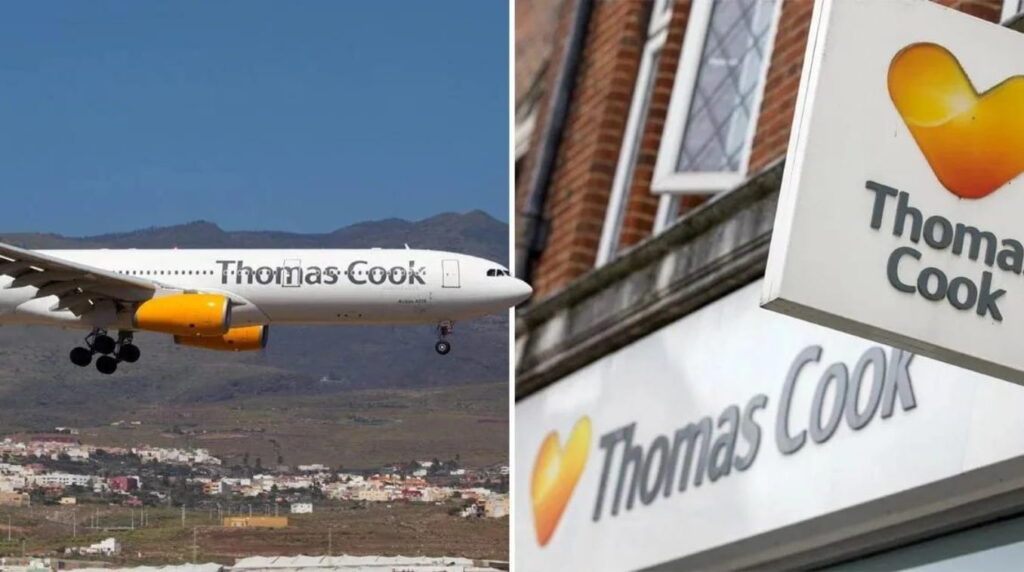Who are they and what really happened?
Growing up and in my early adulthood, Thomas Cook held a special place for me. It had always been my go-to travel agency, before the days of online booking and DIY holidays, and I’ll never forget my Thomas Cook traveler’s cheques which helped me navigate my way through Salamanca, Spain. They represented a benchmark at the time that many other tour operators looked up to. However, times have changed.
Thomas Cook’s collapse is exemplary of a clash between worlds. In essence, it fabulously depicts the transformative and fast-paced nature of the travel industry. Old versus new. According to the BBC, this travel firm had its roots in 1841. Indeed, it once revolutionized the modern-day understanding of booking a holiday. From celebrity singers to insurance brokers to Al down at the burger joint, anyone and every one sought the service of this global travel group when planning the next getaway.
I remember being introduced to the concept of packaged holidays in the 80s and ’90s. The traveler cheques, the flight, the hotel, and the rental car, all in one deal! Having a travel agent arrange every detail of your trip was absolutely the only way to do it. In 2018, packaged holidays were still being booked by 18 million UK travelers, according to ABTA, a “UK travel trade association for tour operators and travel agents.” This is, however, less than half the number of travelers it used to be. Indeed, by the 21st century, Thomas Cook was not ready for its new competitor: you become your own travel agent. Seeking but the comfort of a living room couch and free Wi-Fi, each one of us could book our next trip to the Bahamas without ever having to pick up the phone. According to Cook, prolonged heatwaves and customer confusion over Brexit also played an essential role in its bankruptcy, the 22 000 jobs at risk and holidaymaker disappointment. I believe it was perhaps the inability to adapt in the face of insatiable competition that ultimately led to the Cook empire’s encroachment.
How important is travel insurance?
If Thomas Cook’s collapse taught us one thing, it’s the importance of having a plan B. In the risk management industry, and we may be hyper-aware of all the little things that can go wrong that we do not stop to consider the big picture. Yes, you may lose your bags on route, but what if the entire tour operator shuts down? Whether your government or an agency support it, travel insurance is quite simply, your backup. Unforeseeable events happen. Medical emergencies, trip cancellations, rental car accidents, lost baggage, and global travel firms filing for bankruptcy.
Investing in travel insurance with a trusted agency can make the difference between expensive emergency bills and six refunded plane tickets for each member of your family. At Petra Insurance, we prioritize your peace of mind above all else. Whether on a business or family trip, a plane or cruise ship, a frequent or single trip traveler, a combination of options of coverage are available: from a severe injury to loss of luggage and cancellation charges. As someone who often travels for business and with the family, this is something I always recommend to our clients. Many of us can’t afford to lose time or bear out of pocket expenses for unforeseen events.
Let’s talk protection
Travel Insurance is, above all, a financial protector. You booked a Vueling flight. Your insurance policy should be able to provide a full refund in the case that you cancel your trip. Usually, this is subject to conditions such as suffering a death in the family, illness, weather or terrorism. Additionally, easily overlooked is the protection travel insurance can provide for medical costs.
It is common for general health insurance plans to refuse to cover medical support beyond country borders. Indeed, the protection you are entitled to by travel insurance will depend on the complexities of your current insurance plan. Trust in your insurance agency is unequivocally essential. After all, many of us are familiar with hidden exceptions in long contracts. Transparency with your insurance brokers could make all the difference when left stranded by unjust travel intricacies ask the 450, 000 customers affected internationally by Thomas Cook’s collapse.
Regardless of how safe your journey may seem, expecting the unexpected is part of traveling. I will always look back fondly at my experience with Thomas Cook during its heydays, but what has happened to it should put things in perspective for travelers and why this form of insurance will save them from the worries of travel, delays, or complete disruption of their plans.

RAMZI GHURANI
Managing Partner




